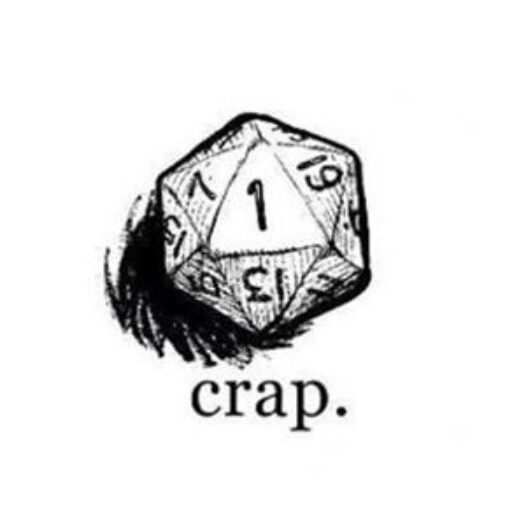Preamble: Go ahead and skip down to DCO Structure if you don’t want to read a bunch of my thoughts on two different types of RPGs and why I think they developed. TL;DR: Dusk City Outlaws is a type of game of which I’m simultaneously interested and wary.
The RPGs that most of us grew up playing tended to be about assembling a collection of sets of formulae and setting those formulae against the DM/GM/Whatever and his formulae. The story was what gave those meetings meaning and context and also helped you decide which formula to set against the formula you were presented. There ain’t nothing wrong with that, at all: I’ve spent quite a bit of my life configuring these and thinking about them.

This part of RPGs is the part that is so well replaced by computer games, because this part of the game is expressed in a way that can be set down as a formula. Baldur’s Gate (both types), Icewind Dale, etc were all great proofs that you could replicate the mechanics of an existing game to provide a very pleasant diversion. You could even dabble in the person-to-person communication, albeit in it’s absolute most basic form.
Other RPGs have tried to make this part, the person-to-person element of pen-and-paper RPGs more complex – the conversation wheel in Mass Effect, or expansive lists like Pillars of Eternity (still recommending that, btw, if you were ever an Icewind Dale fan). But, they can’t. They can try and they can enhance the games that they are in by offering more choices on interactions (especially Mass Effect’s later Interrupt options), but they are probably never going to get around this problem in our lifetime. It would require a Turing-test beating conversation-AI, who also subconsciously understood the game rules and could work within the confines of a recognizable personality – for every single NPC, often several at the same time. Computers are currently and for the foreseeable future, incapable of matching Sean’s wildly impractical inventiveness in the field of animal riding/explosives use.

So this is what Paper and Pen RPGs have over computer RPGs (not including the often overlooked RPG Tangibles I mentioned in the last post, and companionship/dick jokes) and I think the growth of story telling games could probably be correlated to the growth of computer RPGs. Not solely – mashing mathematics isn’t everyone’s cup of tea and arguably the biggest shift towards story over mathhammering was the success of the World of Darkness model, Vampire: TM, etc. And that occurred before the massive growth of computer RPGs: the 90s are bookended by Vampire and Everquest.
I’ve dabbled in games that are relatively rules-light and story-telling heavy, but I always come back to the mathhammering with which I’m comfortable. You are still able to tell interesting stories as a player who mostly exists a collection of abstract quantifications, don’t let anyone tell you otherwise. I have nothing against story-emphasizing games (WoD aside, because, c’mon trenchcoats and fedoras), but they’re drawing from a different skill pool and interaction level than, say, Pathfinder.

Fiasco, is a good example. There is a loose structure to that game, that’s what makes it a game, rather than a conversation starter. It’s a way for a group of people to collectively come up with an entertaining story over the course of a few hours by acting as another person. That puts it closer to an Improv exercise than an evening of Traveller character creation. There’s a super good reason most of us have never taken Improv classes and don’t want to.
So I was surprised at all the positive experiences that people (most weighty the Scottish game group) had with Fiasco. It was, according to many different people, a riot to play. And so games which maybe don’t go as far as Fiasco, Dusk City Outlaws being one of them have a great deal of allure for me, subject matter aside. I want to know if it really does work, if it really can scratch the same itch as plotting out your damage and to hit ratios of a dual wielding Ranger vs double-handed weapon Ranger. Can anything, really?
DCO Structure:
I trust I’m not giving away anything I shouldn’t, but I wanted to paint the DCO game session in pretty broad strokes to give an idea of what’s involved and how far this is from the RPGs to which I’m accustomed. Naturally, I’ll be comparing it to the D&D model, because that’s the type of game that I’ve always played. Also, it is virtually impossible to describe this game in terms other than cinematic ones, because it draws its structure so much from cinematic storytelling.

Each game’s play starts with an Introductory Montage. By this time the GM – in DCO called, magnificently, the Silver Judge – has given everyone a very brief idea of what the Job will be and everyone has chosen their Cartel (their home gang, basically a background), their Specialty (their skillset, basically a class), their Quirk (something that sets them apart from others of their kind) and the players have sketched in the other parts of the character (name, appearance, etc.). You then show everyone else the awesomeness of your creation by narrating a short scene featuring that character, ideally whatever they were doing when they got the nod that a Job was up. The series of scenes as the criminals in The Usual Suspects are rounded up is a pretty good reference.

The GM, as the broker of the Job gives the players the Job Details. The GM tells them what they need to know, as well as how to score extra brownie points and can answer questions as the broker.
Initial Planning is the only planning stage that isn’t timed. Players can talk about what they need to make the Job happen.

At this point, the players can then embark on either Legwork or Planning Scenes. Each of the two types of scene takes up one Day or one Night.
Each player gets to lead a Legwork Scene. You can be in another player’s scene, accompanying them as your skillset or interests dictate, but you wouldn’t be the lead in that scene. The lead in the scene describes what they want, where they are going to get it and how you are going to get it. These are abstract scenes, typically with summarized dialogue: a D&D scene where you go buy iron rations is probably glossed over without every line of dialogue played out and that’s the kind of scene that is going on here. Skill rolls may be made, but they probably aren’t high stakes rolls.

Planning Scenes give everyone a chance to get back, regroup and replot the course they are going to take. This lasts 15 minutes and is timed. The results of the Legwork are known to all players, but to come together and discuss them requires a Planning scene. After 15 minutes, you move on.
You can repeat this process within whatever time constraints you may have for the Job, but eventually things, especially Legwork Scenes are going to get riskier either because the nature of the player’s plans or because as the game progresses the GM has an increasing ability to interfere with the players – the town watch and other interested parties become aware of moves afoot to pull a heist and act accordingly. The good news is that these bold and daring plays can increase a player’s Influence, a resource that they can use to call upon aid and bonuses of various sorts.
In either of these two ways, scenes can become Drama Scenes. Drama scenes are played out in a manner more typical to RPGs and one that would be familiar to D&D players. Everyone gets a turn and an action and this repeats until the whole thing is solved. Fights, chases, derring-do of any kind are all going to become Drama scenes. The Lead character may have set up the scene, but the GM runs it a bit more since there is now opposition. Other characters who were not initially in the scene can join in at a price, but otherwise this is a short, intense scene with risks, acted in by only a few players.

Eventually, because everything comes together or because you have no more time, players will have to move on to The Final Scene. The Final Scene is the same (roughly) as a Drama Scene, except the end goal is to pull off the heist. Everyone is involved, it goes turn by turn, and the GM will be actively throwing spanners in the works of whatever plan you landed on. Essentially players have a lot of time to get their plan as good as they can, and at the same time, their chickens come home to roost.

The mechanism by which the GM introduces kinks and twists in the story is Heat. Heat is generated as the days and nights tick by and there’s nothing you can do about that. But the players CAN make things worse by being conspicuous or picking on the wrong people. The more of a splash the players make in the Legwork scenes, the more it will come back to haunt them.
All of this is a substantially different process than the usual RPG story if we’re looking at it from the viewpoint of a D&D game. There are three immediately obvious features of the DCO structure compared to the D&D way of doing things.
- This is a game that splits the party. Anyone who has ever played anything knows how badly wrong this can go, especially when it means a bunch of people aren’t playing the game they came to play for long periods of time. What will save this is that these are single scenes, not the chance to just leave the group on your own personal jaunt entirely. Still, players could easily get uneven time playing and this structure has a poor thac0 against players who want to be playing all the time.
- You’ve got to be able to talk. Players can create their own scenes, for the most part, especially early on. It isn’t a purely reactive game, as D&D can be (“Here’s the room, here’s the orc, there’s the treasure: what do you do?”). Players will have to take the initiative, without overplaying their hand (“I impress the guardsman with my quirky yo-yo tricks so much that he takes off his guard uniform, pays me handsomely and goes home for the day”). And if you don’t feel like being creative or if you are badly out of sync with the setting as everyone else understands it… it’s going to be awkward. Ideally, everyone would be super-into the setting and understand the rich background and the scope of what a Legwork scene should be, but that’s not going to happen, even with the best will in the world.
- You’ve got to be able to shut up. Not only while other people are doing scenes you aren’t in. The story is everything here, there aren’t many mechanics that you can use as measures of how the story is going. So people have to pay attention. One of the great joys of D&D is that you can often NOT pay attention, and just make dick jokes and chat about stupid shit. If you don’t grasp the plot as it unfolds in DCO, it would seem like you’d be screwed, hard.



